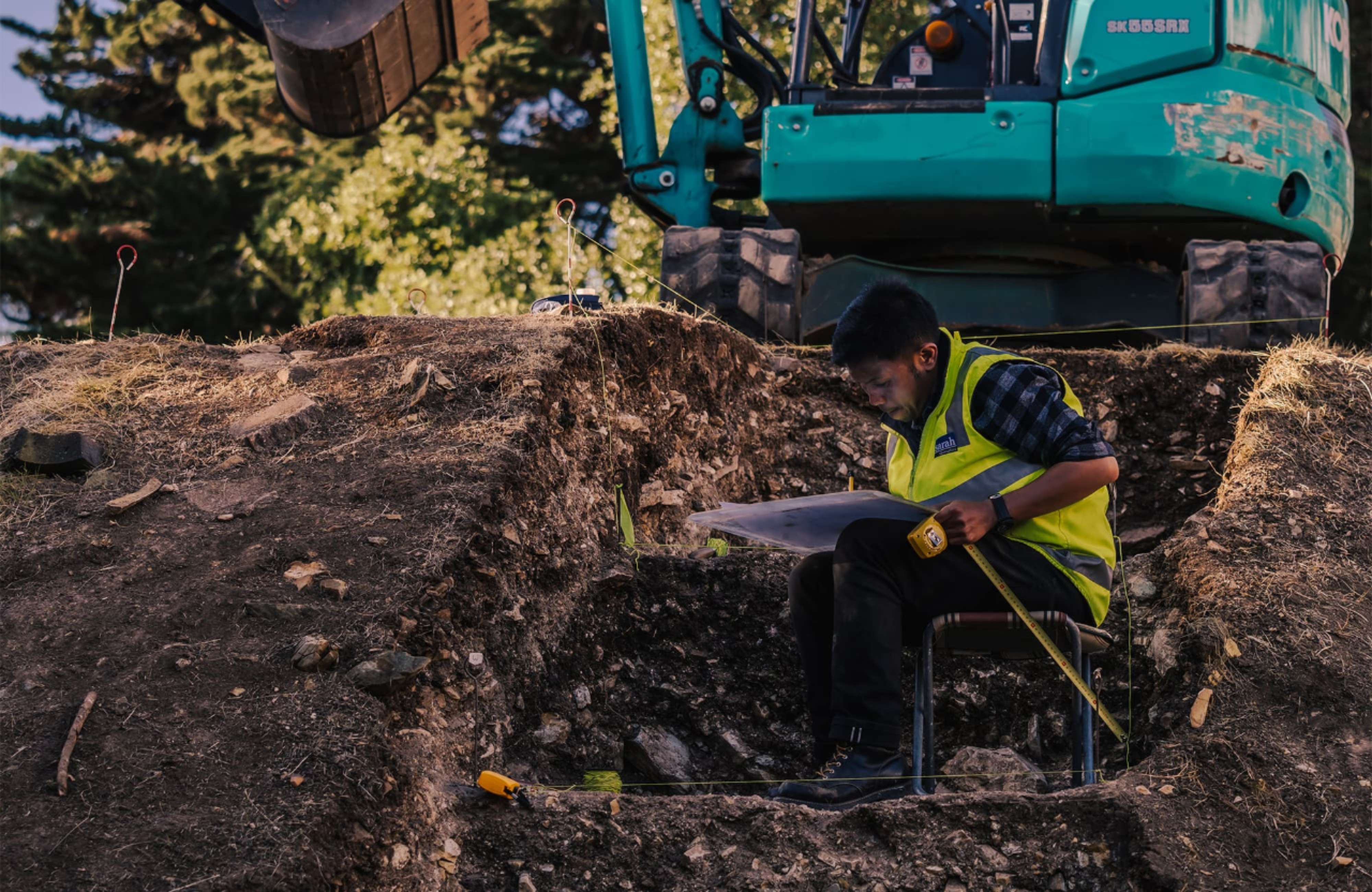
Ever been told that archaeology graduates struggle to find jobs, let alone build a career? Well, guess what? The reality is completely different. Today, archaeologists are highly sought-after with most employment coming from within the booming cultural heritage industry.
Opportunities for archaeologists are spread across the country. From undertaking archaeological surveys in the remote iron ore landscape of Western Australia’s Pilbara region, carrying out salvage excavations of 19th-century homes in the middle of Adelaide, or developing cultural heritage management and conservation plans for Australia’s historic and Indigenous sites, archaeologists are urgently needed to fill these roles.
Employers in Archaeology
Archaeologists today can work for a range of employers including:
- Cultural heritage consulting companies
- Mining and energy companies
- Indigenous-run organisations or corporations
- Museum sector (local, state/territory, national)
- Government departments dealing with cultural heritage
- National and state-run parks
- Conservation organisations such as the National Trust
- Universities
Top careers in Archaeology
With a degree in Archaeology, you’ll be suited to a range of occupations around the globe, including:
1) Archaeologist and Cultural Heritage Specialist
This is the primary job for archaeologists today. There are laws in every state and territory that require any development project such as building a mine or road to undergo a cultural heritage assessment to identify and determine their significance and how best to manage any sites that may be impacted by such developments (historic sites, Indigenous sites such as rock art and stone artefacts, etc.).
Any number of specialists may be brought in to help including stone artefact experts, and geoarchaeologists who help to understand how archaeological sites formed over time. Archaeological and cultural heritage expertise and advice are critical to properly managing and safeguarding Australia’s diverse cultural heritage.
2) Museums: Curator, Conservator, Collections Manager
Curators develop exhibitions about certain topics such as the archaeology of the Maya civilization, conservators focus on the restoration of objects held in museum collections, especially those that are fragile, while collections managers look after objects including their cataloguing and storage, assisting with the development of collections through acquisition, facilitating research into the collections, and working in partnership with Indigenous communities in repatriation efforts.
3) Education and Public Programs
Developing, managing and delivering public programs for various organisations such as the National Trust, schools and museums that are designed to share stories about archaeology, cultural heritage and museum exhibitions.
4) Heritage Officer and Advisor for Local, State/Territory and Commonwealth
Heritage officers and advisors are employed to provide advice and guidance concerning cultural heritage matters, and in some instances implement cultural heritage management plans. These people are employed by government departments at the local, state/territory and Commonwealth level, industry (mining and energy companies such as Rio Tinto, BHP Billiton, Woodside, SA Energy etc.) and Indigenous corporations (among others).
5) Forensic Archaeologist
Forensic archaeologists use archaeological techniques to investigate human burials and skeletal remains. They are employed by state and federal police, defence forces, government heritage management agencies, archaeological consultants, museums, and global organisations like the United Nations.
Activities involve location, recovery, and analysis of human remains. Forensic archaeologists undertake projects involving burial site disturbances related to development projects, mining, and natural erosion; human skeletal remains discovered by the general public or police; soldiers missing in action; genocide and war crimes; repatriation of indigenous ancestral remains and management of contemporary cemeteries.
6) Maritime Archaeologist
Maritime archaeologists are trained in the same fundamental techniques of survey and interpretation as terrestrial archaeologists, but with a focus on coastal, intertidal and underwater archaeology. They have specialist skills that may include diving, boat handling, sonar survey and underwater photography. They are also likely to have specialist knowledge of historical ships, aircraft or submerged ancient landscapes lost to past sea level rise. Maritime archaeologists are employed by federal and state governments, universities and archaeological companies working with coastal and offshore developers.
Top emerging careers in Archaeology
Besides the long-established, “regular” career paths, there are also a number of newly emerging, niche jobs available to Archaeology graduates:
1) Author or Content Writer about Archaeology
Stories about archaeology capture the public’s attention. Content writers create and share stories about topics such as archaeological projects, recent discoveries and debates, and share these with media outlets including popular archaeology websites and podcasts. Authors on the other hand create fictional or non-fictional stories about archaeology that are published.
2) Digital Archaeologist
Digital archaeology is an emerging field or sub-discipline. Digital archaeologists gather historical and archaeological source material to create scientifically accurate 2D and 3D digital reconstructions of ancient and historic sites. They are likely to learn survey techniques like 3D modelling, laser scanning, and photogrammetry and to have advanced photography skills. They produce content in the form of digital art and graphics, 3D visualisations or Virtual and Augmented Reality experiences for historic sites. Digital archaeologists may work as freelancers or are employed by archaeological consultancies around the world.
3) Researcher
Some archaeologists are also freelance researchers who work with media production companies to develop content for documentaries or other programs. This type of work involves searching for content, producing data to accurately tell the story of the archaeology of a topic, selecting locations for shoots and so on.
Start your archaeological career
As you can see, there is no shortage of interesting job opportunities in Archaeology. Lay the foundation today and study a Bachelor of Archaeology or Bachelor of Arts Archaeology major.
Wanting to specialise? Undertake a Master of Maritime Archaeology or Archaeology and Heritage Management.
Or take your studies even further and be inspired by Meghan who won an international PhD scholarship, researching in the field of Geoarchaeology.
So, what will it be?

